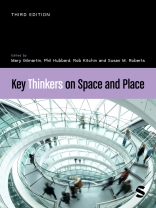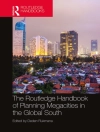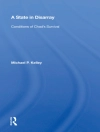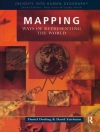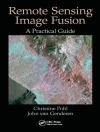Space and place are at the heart of how geographers and sociologists think. This updated edition of the essential undergraduate text will introduce you to the most influential thinkers in the tradition of social theory, with a new focus on the past fifty years. This book is designed to engage with theoretical debates in human geography through the individuals who have made the most significant contributions to this field. This will show you how ideas are shaped by contexts, and how those ideas in turn effect change. This book shows how theoretical understandings evolve, shift and change. It also highlights the connections between different thinkers, whose ideas are developed in collaboration with or in reaction to others. Spatial thought is never developed in a vacuum, but is always constructed by individuals and groups of people located in particular institutional and social structures, with their own sets of personal and political beliefs. The biographical approach of this book reveals how individual thinkers draw on a rich legacy of ideas from past and contemporary generations.
With increased coverage of international and female thinkers, as well as those who work against Eurocentric notions of space and place, this book reveals the exciting reorientation of Geography towards new ideas and methods in the last decade. Each entry contextualises its subject within on-going (inter)disciplinary debates and important political moments, as well as highlighting connections between different thinkers. Together the chapters uncover the rich and diverse evolution of social theory, equipping you with the foundational ideas of geographical thought. Each entry offers the following components:
i) a short biography
ii) an explanation of ideas
iii) an exploration of how their ideas have been used and critiqued
iv) a selective bibliography of key publications (and key publications which review or critique)
Spis treści
1. Sara Ahmed
2. Louise Amoore
3. Benedict Anderson
4. Gloria Anzaldúa
5. Mike Batty
6. Bawaka Country
7. Lauren Berlant
8. Nicholas Blomley
9. Pierre Bourdieu
10. Judith Butler
11. Denis Cosgrove
12. Tim Cresswell
13. Gilles Deleuze
14. Stuart Elden
15. Sarah Elwood
16. Arturo Escobar
17. Michel Foucault
18. J.K. Gibson-Graham
19. Ruth Wilson Gilmore
20. Stephen Graham
21. Jack (Judith) Halberstam
22. Stuart Hall
23. Donna Haraway
24. David Harvey
25. bell hooks
26. Tim Ingold
27. Cindi Katz
28. Audrey Kobayashi
29. Bruno Latour
30. Henri Lefebvre
31. Akin Mabogunje
32. Doreen Massey
33. Achille Mbembe
34. Linda Mc Dowell
35. Katherine Mc Kittrick
36. Richa Nagar
37. Gunnar Olsson
38. Aihwa Ong
39. Anssi Paasi
40. Jamie Peck
41. Jasbir Puar
42. Laura Pulido
43. Paul Robbins
44. Jennifer Robinson
45. Gillian Rose
46. Edward Said
47. Milton Santos
48. Saskia Sassen
49. Amartya Sen
50. Abdou Maliq Simone
51. Neil Smith
52. Gayatri Chakravorty Spivak
53. Nigel Thrift
54. Anna Tsing
55. Yi-Fu Tuan
56. Eve Tuck
57. John Urry
58. Gill Valentine
59. Eyal Weizman
60. Brenda Yeoh
61. Oren Yiftachel
62. Kathryn Yusoff
O autorze
Sue Roberts is the Associate Provost for Internationalization and Professor of Geography at Kentucky University. Her interest in why some places and people prosper, and others remain marginal has led to wide ranging, interdisciplinary research interests including anti-development, geopolitics, neoliberalism, trade, hegemony, militarization, security, social theory, and gender. Sue has won research funding from the National Science Foundation for several projects, and has conducted research in Southern Mexico, the Caribbean, Ireland, and Australia. From 2012-2017, she was North American Editor of the top-ranked journal Progress in Human Geography. From 2008-2012 she was Chair of the Department of Geography at the University of Kentucky. In 2015-16 she served as Associate Dean for International Affairs in the College of Arts and Sciences and directed the International Studies Program, a popular interdisciplinary undergraduate major.
